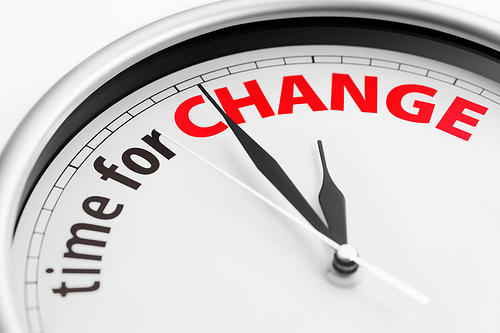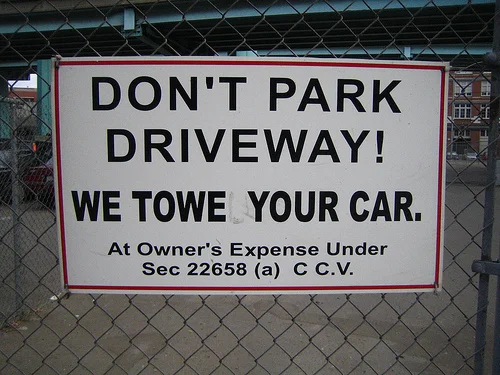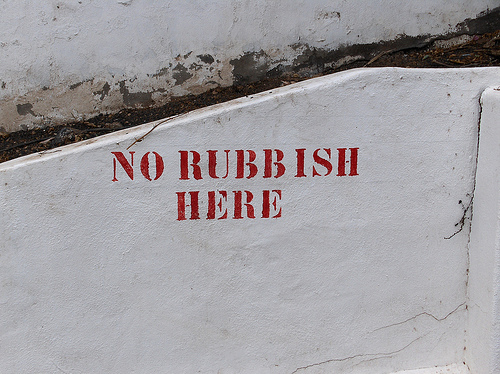Randy Heinitz /flickr
January 1st: The time of resolutions, of living cleaner, living better, doing better, getting up at dawn to write (which will never happen), drinking less (also unlikely), and just improving my general personhood.
I don’t often make New Year’s resolutions. But on the eve of a brand new year, I do usually give some thought as to how I could do things better, how I could be happier, and how I could make the others around me happier too. In reality, I do this much of the year, but I give this category of thought special dispensation on January 1st. I often hope for guidance from the stars, or the gods, or the tarot, or the coffee grounds, or the mouse entrails my cat leaves on the stoop.
Sadly, the entrails and gods seldom have much to offer. Neither does my family who I routinely pester with questions regarding what I should be doing differently in the upcoming year (often laying my head on the table in despair surrounded by empty wine glasses). Should I quit my day job and focus on my writing? I always hope they will give me a resounding yes – they never do. Should I just start saying no to everything – volunteering, new contracts, extra work that makes me harried and disagreeable? I try very hard to do this but saying no is a torturous affair for me.
The reality is for the most part, compared to most people in the world, I am supremely privileged, and I in general, do a reasonably good job of exercising, eating healthy, having friends and writing relatively regularly, while maintaining a household and a part-time day job. I set goals and for the most part meet them. If I were to make a New Year’s resolution, it would mean that I have to drop or do less well on one of the important things I already hold in a precarious balance. Okay I’d be happy to drop the day job, but since as indicated above, I seem to have little support for that resolution, maybe that isn’t in the stars (or the entrails).
marsmet546 /flickr
While I know all of this, and I know that in most cases resolutions do not work, I nevertheless always hunger for some sort of change on January 1st. Some sort of positive new direction, hope or focus. Just one little resolution. At least enough so that I feel my head-on-the-table-pestering-my-family-surrounded-by-wine-glass sessions were fruitful. Besides, despite my glowing description of my life in the previous paragraph, I am chronically stressed, never make time for myself, have to deal with a dying parent, and feel pulled in too many directions each and every day (which sometimes makes me a little cranky). I don’t know for sure, but I rather suspect that my family would like me to resolve to be worse. To be less determined to exercise a certain number of times per week, to allow our house to be a mess, to make simpler but less healthy or tasty meals, to turn in less perfect work products. But since they do not seem receptive to pestering today, I cannot confirm this for sure. However, for me, these would be tough resolutions to make.
I have read the resolutions of other writers. Most of them revolve around the writing and/or publishing process - committing to writing regularly, writing a set amount of time per day, writing every day, enjoying writing, enjoying publishing, not worrying about your sales (yeah right). There are some good resolutions out there – Chuck Wendig’s most notably (of course) are worth a read. Jeff Goins also offers some good advice, and he is right, I should probably be more enthusiastic about embracing the pain of rewriting until it hurts.
But for the most part, aside from the continual difficulties of squeezing writing in amongst the clawing demands of my life, I feel like I have a decent handle on the writing process.
In a Writer’s Digest article from 2013, Rachel Randall suggests resolving to call yourself a writer...hmm. This would definitely be a challenge. I write, but I would not dare call myself a writer, at least not out loud or in anything other than a self-deprecating tone (making it clear to all listeners that I think my claim to being a writer is about as farcical as when I used to claim in the bar in my twenties that I could have become a model – that was cringe-worthy even at the time).
But funny, I also ski, and am quite fine with calling myself a skier, even though I actually write better than I ski (and I am not a bad skier). Randall points out that many of us think that writing may work out for us in the end, and it may not. Thus many of us are probably hesitant to call ourselves writers. There is also the risk of course that people will make fun of us. But Randall points to a passage by Larry Brooks in which he says the following:
If you are a writer–and you are if you actually write–you are already living the dream. Because the primary reward of writing comes from within, and you don’t need to get published or sell your screenplay to access it. …
Maybe there is something there. I ski for only myself, and I call myself a skier. Perhaps I can also call myself a writer.
Great. I will call myself a writer. I should. It’s time. Maybe.
But that somehow doesn’t seem big enough, bold enough, for what I want to achieve in 2014. I know I should probably stop apologizing for my writing, feeling bad that I am not tending the kids, or cooking, or earning more money. But that is unlikely. Even now as I sit here working on this while someone else does dishes, I feel bad.
My bold resolution should have something to do with hope, or believing in my writing. I tried faith a few years ago. That did not work out very well. I was too hardened in the writing world at that point to let it take root. The funny thing is, I do believe in my writing. I believe it is good. I would not have continued on as long as I have if I did not. But I do not believe that good writing is enough to make it. When I first published my novel A Pair of Docks, I hoped it would take off immediately. Despite a few heady days as my friends and family purchased, it did not become an overnight bestseller.
After a few days of worrying, I decided that all I needed to feel good about my progress was one good thing a day – one sale, one person saying they could not put it down, one good review, one good rating, one retweet of my posts about my novel, one technical success. I know that this is a long game and that I need to play it to win. And guess what? Since I made that deal with myself, I have not yet gone a day without at least one good thing. I have also discovered that if you are determined enough, you can find one good thing – every day.
Maybe my initial resolution about faith was too focused on the external world. What I do have faith in is myself. My 2014 resolution is that I will play this to win – one good thing at a time. And I will call myself a writer (to the mirror at least).
Photo Credit Rocks: Randy Heinitz via Compfight http://creativecommons.org/licenses/by/2.0/
Photo Credit Clock: marsmet546 via Compfight http://creativecommons.org/licenses/by-nc-sa/2.0/






